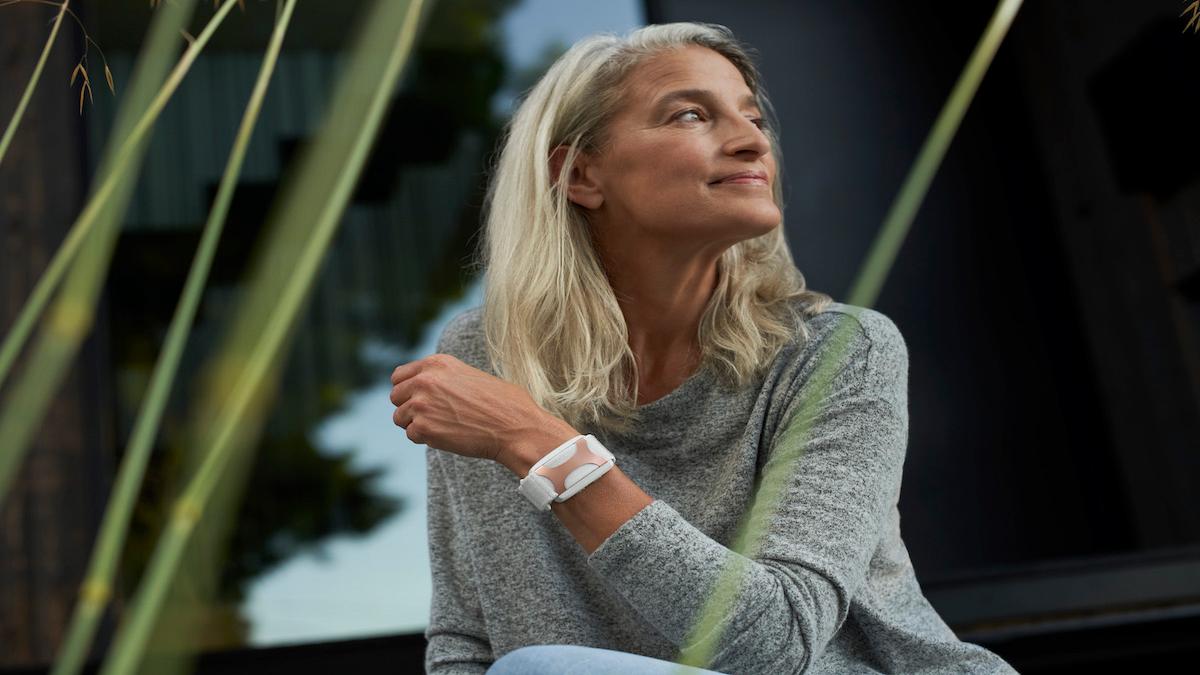Mother’s Day Is Right Around the Corner! This Year, Get Her Something She’ll Actually Use With This Health-Enhancing Apollo Wearable ($50 off)

This article is sponsored by Apollo Neuro.
Not quite sure what to get Mom for Mother’s Day this year? Tired of spending money on gifts that are tossed away after only a few months?
The team at Apollo Neuro is here to help you by offering $50 off The Apollo wearable from now until May 13 with their special Mother’s Day Sale.

What is The Apollo Wearable?
Utilizing low-frequency sound waves felt as soothing vibrations, the Apollo wearable was developed by neuroscientists and physicians for less stress, better sleep, more energy, and focus.

Through soothing, gentle waves of vibration, the Apollo wearable helps your body relax and reduces feelings of stress to help improve your general mood and mental health throughout the entire day.
During the day, it provides a boost of energy to help you power through your daily tasks, whether that consists of work, regular household chores, or any other activities. It’s like a double espresso for your body!
In the evening, the Apollo wearable helps you relax and unwind so you can be present and enjoy time with family and friends. Then, at night, the Apollo wearable uses its non-invasive touch therapy to send silent, soothing vibrations to the body that help lull you to sleep faster and get you more rest throughout the night.

The Apollo wearable will help give your mom Supermom Power and more control over how she wants to feel throughout the day—more energetic, less stressed, and well-rested.
Users on average get 19% more deep sleep, 14% more REM sleep, and up to 30 more minutes of sleep every single night.
What sets it apart from other wearable devices?
The Apollo wearable is a game-changing new technology in both the health & wellness wearable tech space. A recent Apollo sleep study demonstrated that Apollo users can get up to 30 more minutes of sleep a night when used consistently (at least 3 hours per day, 5 days a week).
Furthermore, a recent peer-reviewed study conducted by the University of Pittsburgh found that the Apollo wearable is the first wearable to significantly increase heart rate variability (HRV), thus accelerating athletic recovery and cardiovascular fitness for its users.
From a health and wellness perspective, the Apollo wearable is unlike any other fitness and health wearable because it doesn’t just track your health biometrics; it actively improves your health by strengthening your nervous system. All you have to do is wear it and feel the vibes!
What’s more, this device offers maximum comfort with the ability to be worn in different ways—whether it’s on a band around your wrist or ankle, on a clip attached to your shirt collar or bra strap, or on your waistband.
At the end of the day, the science behind this technology is the real deal. The Apollo wearable was created by neuroscientists and physicians and has already completed seven clinical trials, with nine more underway.
Across Apollo’s scientific research, they’ve discovered that Apollo wearable users on average experienced: 40% less stress and feelings of anxiety, 19% more time in deep sleep, 11% increase in HRV, and up to 25% more focus and concentration throughout the day.

More about Apollo Neuro
Born in a lab at the University of Pittsburgh, the early spark of an idea to unify the age-old science of touch therapy with 21st century innovation began with a team of neuroscientists and physicians, including co-founder Dr. Dave Rabin, MD, PhD, who were exploring ways to naturally induce the feeling of safety to help veterans with treatment-resistant PTSD.
This research became the backbone of Apollo Neuroscience, co-founded in 2017 by husband and wife team Kathryn Fantauzzi, CEO, and Dr. David Rabin, MD, PhD, CIO.
Apollo Neuroscience has developed the first scientifically-validated wearable technology that actively intervenes to improve your health using novel touch therapy that signals safety to the brain. People who wear the Apollo wearable consistently through the day and night experience more energy, focus, and relaxation and better sleep.
The Apollo Neuro technology was built because current health tools often don’t cut it. Meditation, mindfulness, and breathwork may help, but are often not enough on their own. And they’re really hard to learn and even harder to work into your daily routines, especially when you’re already busy and feeling stressed. The Apollo wearable puts you back in the driver’s seat.
Have a tip we should know? [email protected]